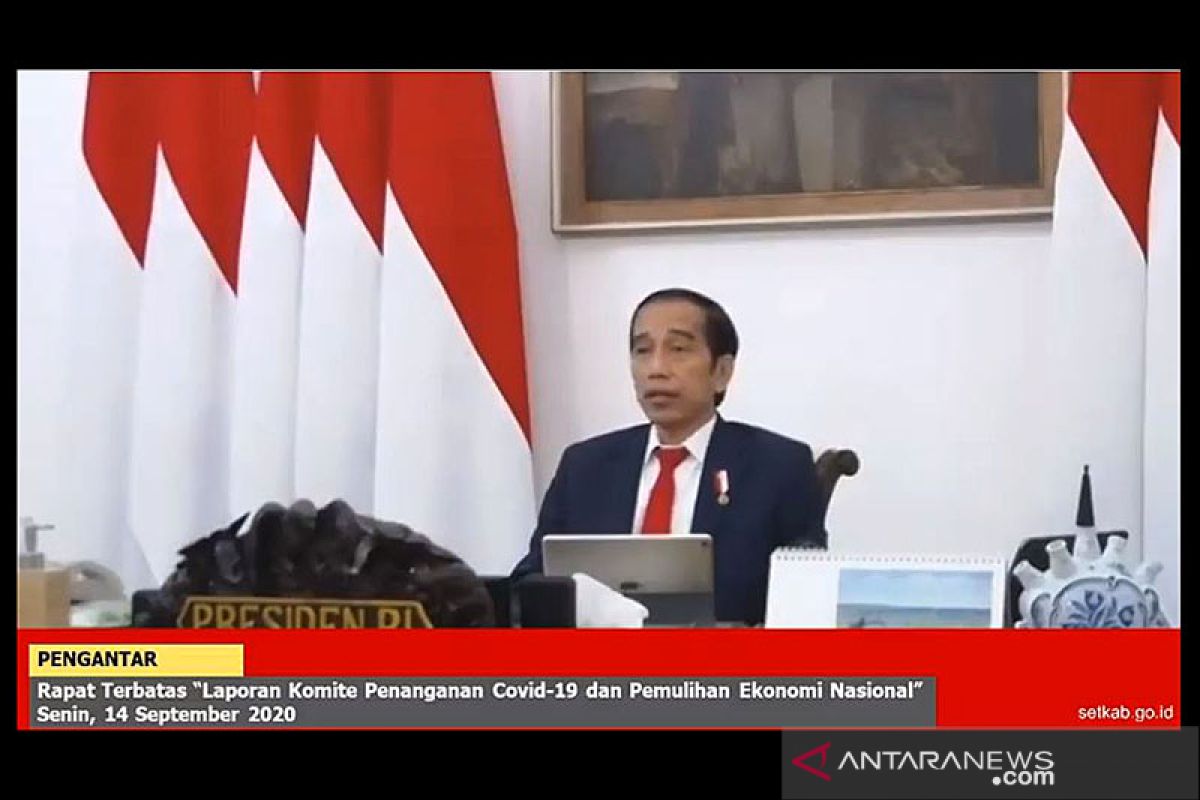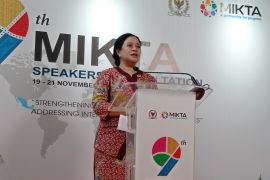"Once again, do not rush to close an area, city, or district, and if we work based on data, the intervention steps will be more effective and can immediately solve problems on the field," Jokowi remarked while chairing a limited cabinet meeting at the Merdeka Palace here on Monday on efforts to facilitate economy recovery during the COVID-19 pandemic.
The head of state also reminded that decisions taken in response to additional cases in provinces, districts, or cities should be based on distribution data.
"I have told you numerous times to apply local-based intervention strategies and local-scale limitation strategies, be it at the RT, RW (neighborhood level), village level, or hamlet level, so that the handling mechanism is more detailed and focused," the president noted.
President Jokowi cited as an example that a province could have 20 districts and cities, but not all of them are categorized as red zones. Hence, the handling mechanisms should not be generalized.
"Some are green (zones), while others are yellow zones, thereby necessitating different treatment and handling mechanisms," the president remarked.
Jokowi especially pressed for improvement in the COVID-19 handling mechanisms in eight provinces: Jakarta, West Java, Central Java, East Java, North Sumatra, South Sulawesi, South Kalimantan, and Papua.
Jakarta Governor Anies Baswedan had earlier decided to re-enforce strict large-scale social distancing (PSBB) measures in Jakarta, as of Sept 14, 2020, for the subsequent two weeks as a form of an "emergency brake" mechanism in the wake of the capital city experiencing a nearly 50-percent spike in the number of COVID-19 cases lately.
Baswedan noted that over the last 12 days of September, the number of confirmed cases in Jakarta had gone up by 3,864, or 49 percent.
Moreover, death rate in the capital city surged, while the number of isolation beds and special ICU rooms for COVID-19 treatment were limited.
The Jakarta government has ordered the closure of schools and educational institutions, tourism and recreation areas, city parks, public sports facilities, and wedding reception venues.
Places of worship in residential areas used by local residents can operate by applying health protocols.
Markets and shopping centers can operate, with a maximum visitor capacity of 50 percent at one location simultaneously, while restaurants and cafes can only receive take-away orders.
As of Sunday (Sept 13), the confirmed COVID-19 tally in Indonesia reached 218,382 people, including 3,626 fresh cases within the last 24 hours. A total of 155,010 people have recovered from the disease, while the death toll reached 8,723.
Jakarta recorded a total of 54,220 cases, with an increase of 1,380 cases as of Sunday, Sept 13.
The second-largest count of COVID-19 cases was recorded in East Java, at 38,088 cases, followed by 17,742 cases in Central Java, 14,388 cases in West Java, and 13,291 cases in South Sulawesi. Related news: Indonesia fortunate to choose social distancing over lockdown: Jokowi
Related news: Police ready to take strict measures against health protocol violators
EDITED BY INE
Translator: Desca LN, Fardah
Editor: Suharto
Copyright © ANTARA 2020












